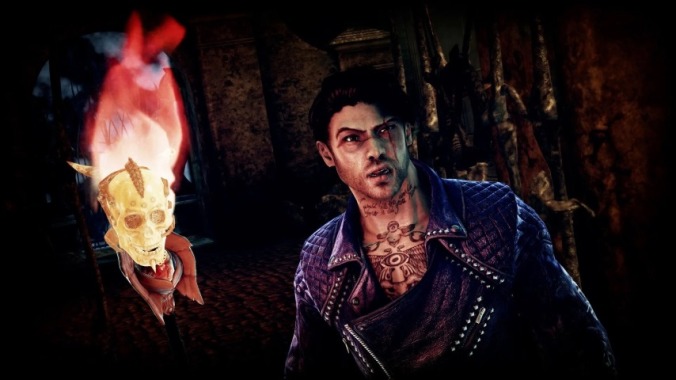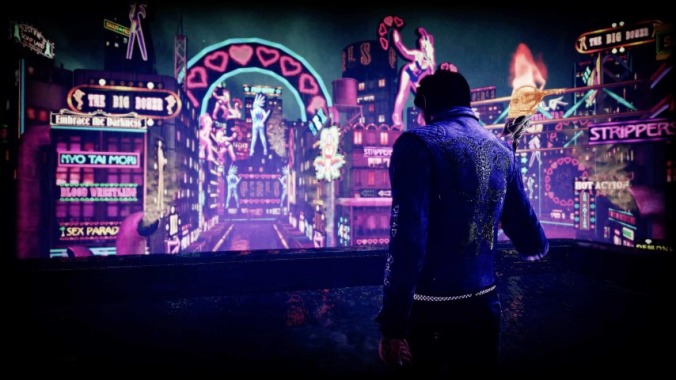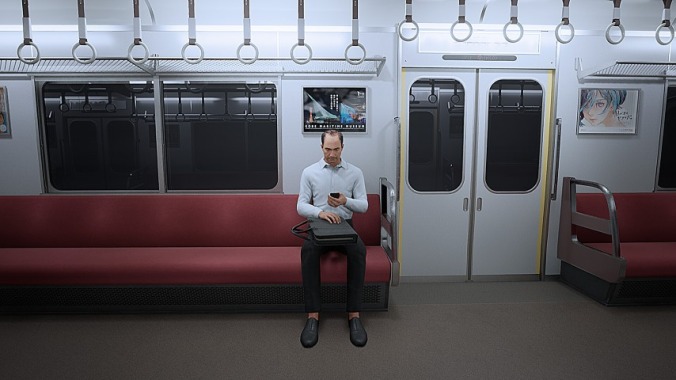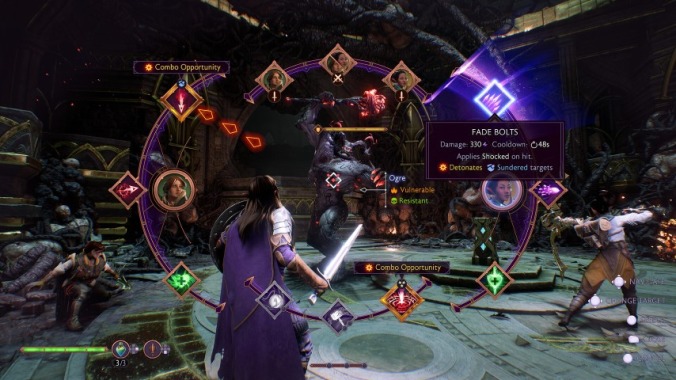Bytes ‘n’ Blurts: Shadows of the Damned, Dragon Age, and More

Wondering what the Paste Games team has been playing lately? Don’t have time to read new game reviews, and prefer something quick and direct? Just looking for 1000 words to eat up a couple of minutes of your wait at the doctor’s office or airport lobby? Our new column Bytes ‘n’ Blurts offers a quick look at what games editor Garrett Martin and assistant games editor Elijah Gonzalez have been playing over the last week—from the latest releases to whatever classic or forgotten obscurity is taking up our free time. This week we look at a remaster from one of gaming’s few legit auteurs, the return of Dragon Age, and a horror game inspired by a now-deleted teaser for a game that was never made.
Shadows of the Damned: Hella Remastered

Year: 2024
Platforms: PlayStation 5, Xbox Series X|S, Switch, PC, PlayStation 4, Xbox One
Like so much of Goichi “Suda51” Suda’s work, Shadows of the Damned is almost embarrassingly puerile, even when it was released all the way back in 2011. This horror game, made in collaboration with Resident Evil creator Shinji Mikami, is as desperately sex-obsessed as a nerd in an ‘80s teen comedy; it’s jam packed with dick jokes, features a damsel in distress who exclusively wears lingerie, and basically answers the unasked question of what a Japanese action-horror game made by Howard Stern at his crassest, most shameless peak would look like. And it’s open for debate whether it’s misogynistic or trying to parody the misogyny so common in videogames.
That constantly juvenile tone has always worked, though. It’s so overbearing, so over-the-top, that it doesn’t feel like an affectation or a lazy way to market itself to the sweaty housebound teens that were then believed to be the only audience for videogames. It’s an intentional stylistic choice that instantly marks Shadows as a game by Suda51, a self-styled punk game designer who mills through so-called “junk culture” for inspiration as much as Quentin Tarantino or Robert Rodriguez do. As Steve Haske wrote in his review of the original here at Paste,“Shadows is so straightforward in its tongue-in-cheek immaturity, it comes off as entirely natural, making it damn near impossible to not immediately be taken, mesmerized, down the dark and eccentric narrative path it throws in front of you.”
Shadows of the Damned has been remastered with an incredibly light touch. Granted it’s been 13 years since the first (and last) time I played it (from my review at the time, for a newspaper that may or may not still exist: “a twisted take on the old Orpheus myth, [Shadows of the Damned] has the self-aware sense of humor, pop culture pastiche, and alternately absurd and unsettling tone expected from a Suda51 game”), but Hella Remastered lines up so perfectly with my memories that I can’t tell what, if anything, has changed here. It feels like it was written by a horny teenager, it still plays like a way more lenient Resident Evil game that’s less interested in punishment than entertainment, and it even looks like a game from 2011. (The gothic art design is so fab that it’s resistant to the degradations of time, but there’s a dull flatness to everything that marks this as a game obviously not of this time.) Most importantly, its single-minded devotion to being the thirstiest game about killing demons ever made pulls its constant locker talk out of cringe territory and turns it into something almost beautiful and sublime.
I don’t know if Suda’s intent was to mock the cartoonish oversexualization of the games industry in the 2000s, but Shadows of the Damned renders all other contenders so irrelevant that it has that exact effect. Shadows of the Damned is so oversexualized that it’s desexualized, elevating the lizard brain of the eternally turned-on games biz into a mythopoetic state of purity and bliss. Shadows reaches a new level of innocence through raunch, just as its antihero Garcia Hotspur has to slaughter his way through hell to regain the heaven he once knew. Drink full and descend, and whatnot.—Garrett Martin
Platform 8

Year: 2024
Platform: PC (coming soon to Switch and PlayStation)
It’s no secret that P.T. has had an outsized influence, and Platform 8, a short, looping horror game about trying to escape an infinite train, is a perfect example of this impact. Here, you wake up in a fairly non-descript Japanese subway car that’s empty aside from a single salaryman on his phone. But when you try to pass into the next compartment, the door leads right back to where you started. And then things start to get even weirder and more frightening; faceless beings give chase, advertisements writhe, and giant faces peer in from the windows. Basically, as you pass through this space over and over, you have to solve unnerving little puzzles as you outsmart ghosts and track down anomalies, with each solved trial putting you closer to escaping this limbo.
